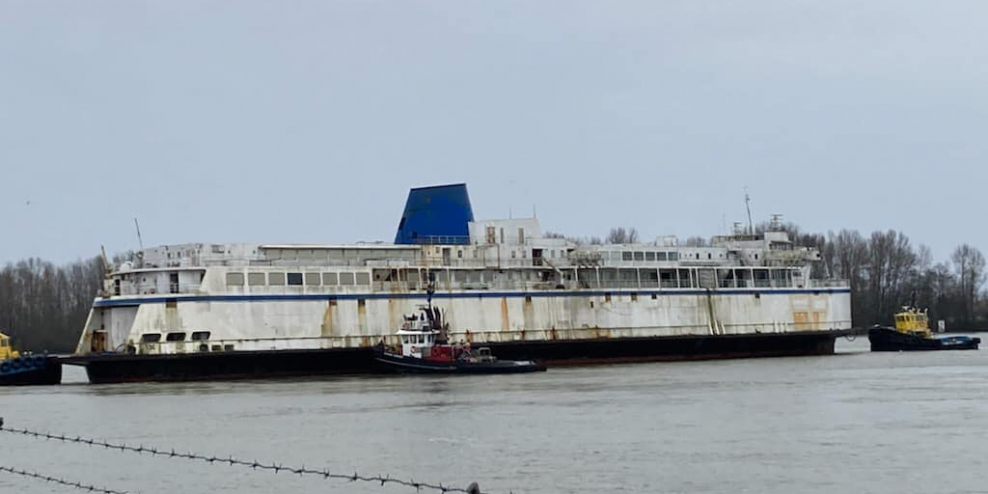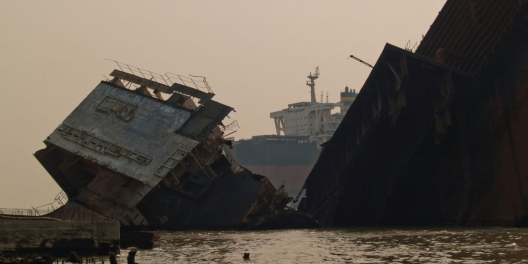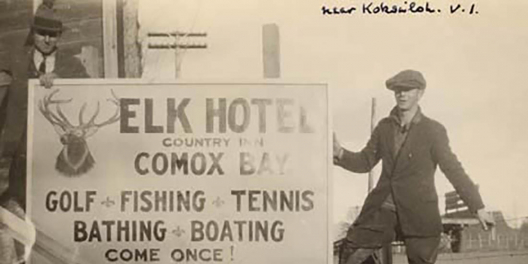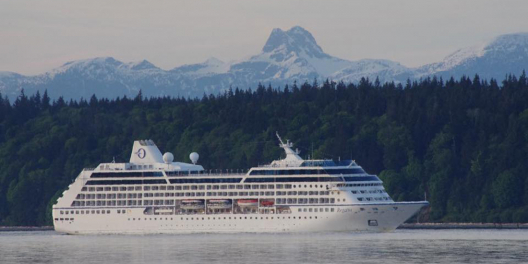If you haven’t heard by now, Comox Valley Regional District is suing Deep Water Recovery Ltd. The regional government is seeking a court injunction to force the company to stop its ship breaking operation, claiming it violates regional zoning bylaws. Bylaws sound small-time, but they’re the only regulations municipalities have to stop big companies from doing dirty business in their regions.
So far, the lawsuit hasn’t stopped Deep Water.
Deep Water, a company that allegedly specializes in “ship breaking,” or recycling old ships, has been operating in the ecologically sensitive Baynes Sound. But neighbours and the regional government claim it doesn’t have the proper approvals.
And Deep Water doesn’t seem to care.
In an interview with The Tyee, Deep Water director Mark Jurisich insisted his company “has always followed the rules,” arguing Deep Water “doesn’t do ‘ship breaking’ because they mainly dismantle barges, which are not ships.”
The company appears to be taking advantage of loopholes. The feds should oversee ship breaking, but Canada doesn’t have specific ship breaking laws. So that leaves the problem to the province and local officials.
But Deep Water has been overstepping regional and provincial authority since they started ship breaking in December 2020. They reportedly operated for eight months despite a cease-and-desist order from the province before getting a new foreshore lease.
The Concerned Citizens of Baynes Sound Society (CCOBS) have been complaining since the ship breaking started. Their lawyer, Carla Conkin, said the province got “tied in a knot” when it perhaps unwittingly approved piecemeal changes.
Why is this a big deal?
Baynes Sound is a provincial shellfish reserve, and it’s also home to a lot of people.
Long story short? Recycling ships lets us reuse the valuable materials they’re made of, which is a good thing. But it’s a messy, messy process.
Old ships are often toxic. So it’s no easy feat to take them apart.
They contain everything from asbestos to heavy metals such as mercury, lead, and cancer-causing compounds and chemicals. In addition, every new bilge contains a cocktail of unknown waste.
If ship breaking is not done carefully with highly trained workers, people and the web of life can be exposed to dangerous chemicals.
The Concerned Citizens of Baynes Sound Society (CCOBS) are worried that’s happening in Baynes Sound. And according to one of their members, they’re being silenced.
Marilynne Manning, a self-proclaimed member of CCOBS, says members have been served with “threats of legal action if they continue to speak out.”
But that isn’t stopping her.
“Even though I have been threatened with legal action, I can no longer be silent on what has been occurring this past week,” she said in a post on the Union Bay Bulletin Board Group on Facebook.
What’s pushed her to raise her voice?
Even though the regional government is suing them to force them to stop, Deep Water is reportedly continuing to break ships.
Manning says Deep Water has been trying to move the NOASS Miller Freeman on shore to be broken down. She posted the ship’s auction documents on Facebook. And according to those documents, it would be an especially hazardous ship to recycle.
This is happening next to a residential community and, without provincial oversight, in a sensitive ecological region with a thriving aquaculture industry.
It doesn’t make sense.
Traditionally, ship breaking is done in developing countries with weak labour and environmental laws. Or, you know, in Canada. Like we said above, Canada has no ship breaking regulations.
It’s dangerous, dirty work no matter where you go.
Jordan Elliott is the CEO of Canada’s oldest ship-breaking company. He told The Tyee that there are only a handful of ship recycling companies in the world that have been around for more than ten years.
He said most new companies “really fuck it up” because it’s hard and expensive to deal with hazardous waste and the environmental regulations. This kind of business takes real skill.
While the local government has taken its only available steps, Manning and CCOBS say the provincial government needs to back them up.
“[There’s] no permit required, no understanding of Internationally approved shipbreaking conventions, no adherence to the Basel Convention, and no fines issued when Deep Waters ignored the cease and desist order issued in Feb 2021!”
Without provincial and federal regulation, polluting companies will keep weaselling their way into our communities.
The federal and provincial governments need to stop passing the buck and take some action.









